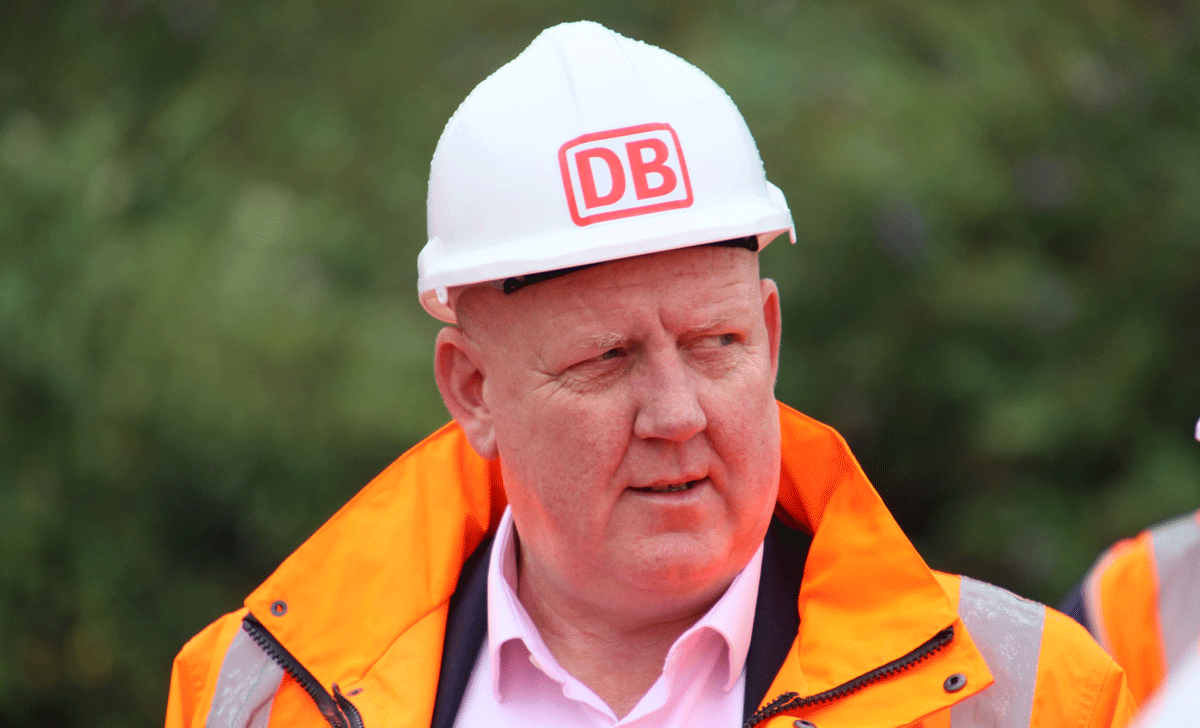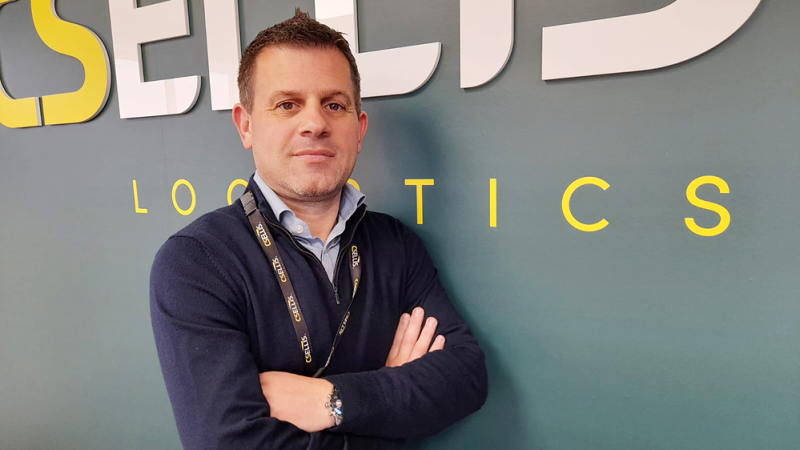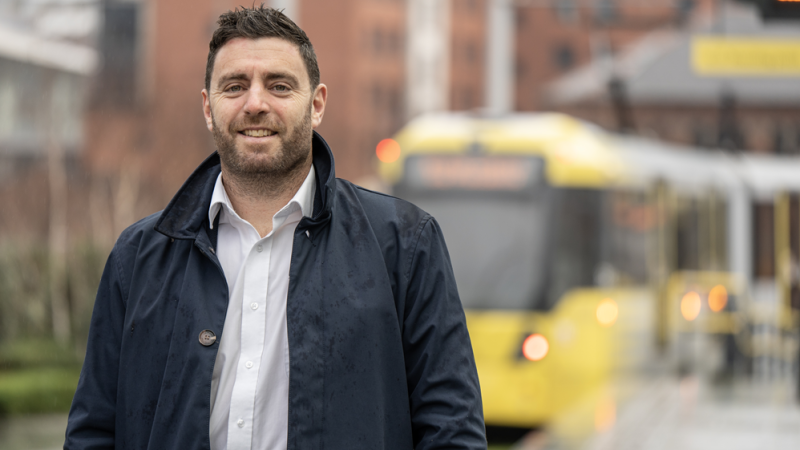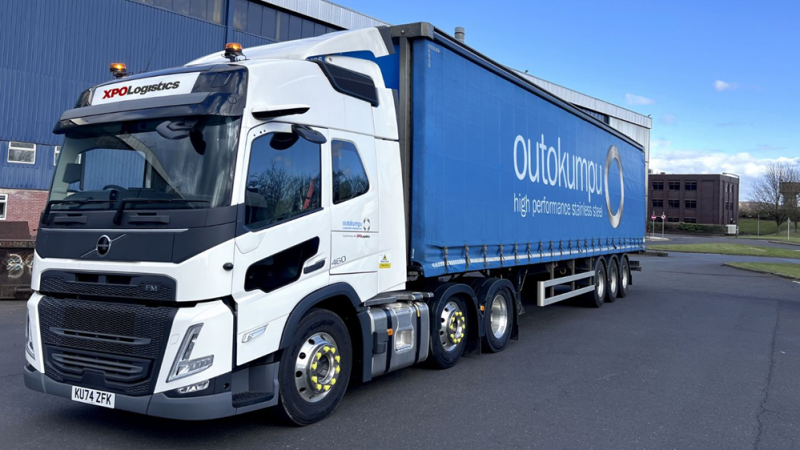DB Cargo UK, part of Germany-headquartered DB Cargo Group, has a strong position in the UK, providing a full range of logistics, supply chain and associated services, including door-to-door deliveries, warehousing, and terminal management.
The company’s role in supporting the UK’s economy is undisputed. “DB Cargo UK is the UK’s largest train-operating freight company, transporting everything from cars, steel, biomass and aggregates to petroleum,” says COO Neil Ethell. “We employ over 2,200 staff across the UK, serving a wide range of sectors through a fleet of over 160 locomotives and 3000 wagons.”
He adds that the company is a direct contributor to transport decarbonisation in the UK, pointing out that one train removes up to 129 HGVs from the UK’s roads. As such, DB UK is helping the UK to achieve its climate target of net zero by 2050.
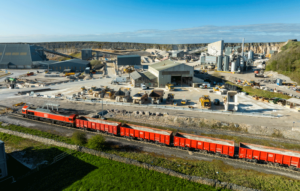 From loss-making to profitable
From loss-making to profitable
Ethell reflects that the world in which the company operates has changed significantly since 2020 and as a result, the number of freight trains in operation has reduced significantly.
“The markets have been squeezed by inflation and increased interest rates, forcing us to make some tough decisions. The cost differential between rail and road is rising exponentially; with the increased environmental and safety benefits of rail versus road, we need to level the playing field!”
He explains that the company has adopted a transformation plan to make the business sustainably profitable and more efficient and the results are already clearly visible – during 2022 and 2023, DB increased service delivery to its customers by 67.5% year-on-year, and in 2023 improved locomotive reliability, measured in miles per technical incident, by an astonishing 180%!
Changes have also been made on the financial side. “Over the past 12 months, we’ve made conscious decisions to walk away from some contracts where we were losing money and have renegotiated several contracts to ensure they better reflect the true cost of what we deliver for our customers today,” says Ethell.
“These new contracts will return us an appropriate and sustainable profit for years to come and give us greater protection against any sudden changes in our trading environment in the future.”
“Growth is not just about winning new contracts. It is also about working with our existing customers to maximise opportunities on a mutually beneficial basis. Our sales team has done a phenomenal piece of work in this respect, the financial benefits of which will flow through to our bottom line for years to come.”
Optimised fleet
On the operational side, DB has completed a significant asset consolidation. Obsolete rolling stock has been disposed of and existing vehicles have been upgraded.
“The Class 66 will continue to be the backbone of DB’s loco fleet – and the process of regearing some of them to give them a higher tractive effort has already started. This will ensure they can pull some of our heavier loads and will therefore enable us to continue phasing out our ageing and less reliable Class 60s,” says Ethell.
He further affirms that the Class 92s will continue to be part of the locomotive fleet given DB’s continued commitment to operating international traffic, and the company even plans to invest in its Class 92s to bolster its existing provision to allow international traffic to be a growth area for the business.
“The rationalisation and better deployment of our locomotive fleet will save us millions of pounds a year and create some much-needed headroom in our maintenance and engineering teams, enabling us to maintain our remaining locos in a more proactive and planned way.”
A similar ‘right size’ approach has been applied to the wagon fleet, maintaining only those that truly generate revenue. This will also tackle some issues like short sets which have a negative impact on the bottom line, says Ethell. “Over the past 12 months we’ve seen an 87% reduction in the number of instances of short sets. This dramatic and sustained reduction is a perfect example of how by working together we can reduce waste and improve customer service, making us more efficient all around.”
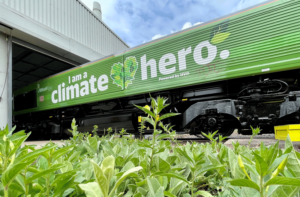 Green and digitised
Green and digitised
The focus is not only on rationalisation of assets but also on improving how they are maintained, deployed, and run. To this end, the company is planning to invest in a new end-to-end operating system – the biggest single investment in DB’s technology platforms in over 50 years, one that is set to boost operational performance, improve customer service, and reduce costs.
The investment complements another area that is at the forefront of DB’s strategy – the quest to lead the way in green and sustainable freight transport across Great Britain. Ethel acknowledges that the company is the first train operator in the industry to use HVO (Hydro-treated Vegetable Oil) as an alternative fuel, as a bridging agent until 2040 when the company is set to have no diesel-only locomotives on the network – challenge posed by the UK government.
And yet another ‘first’ has been achieved in the digital realm. The company will have the first locomotive in Britain’s principal freight fleet (Class 66s) to be fitted with digital signalling equipment to use the new European Train Control System (ETCS).
“We are playing a leading role in the delivery of the ETCS system. This change will impact almost all areas of our business at some point in the next two to three years. We are at the forefront of a real revolution, the biggest change in our industry since steam, and I am proud to be part of it,” says Ethell, adding that the company is already in the process of building two new training centres to train drivers on the new system.
Helping the modal shift
With its extensive initiatives, DB is committed to leading the next generation of rail freight. “We take confidence in the Department for Transport’s rail freight growth target of 75% in net-freight tonne-kilometres by 2050, although this target should be seen as a floor rather than a ceiling,” Ethell points out.
To this end, the company has helped to spread the message through its ‘Freight Belongs on Rail’ campaign and has spent several years lobbying politicians and civil servants about the significant economic and environmental benefits of rail freight over road haulage.
Going forward, Ethell emphasises the key role of its people within the business: both DB’s committed staff with their passion, dedication, and resilience as well as the company’s Senior Leadership Team. “Needless to say, suppliers, our trusted partners, are also critical to our business success,” he affirms. HL Engineering, the specialist in providing bespoke turnkey services from CAD design, structural steel, pipework fabrications to on-site engineering services, is just one example of such a partner.
“Over the next 12 months we need to create a solid platform for modal shift and drive our message that Freight Belongs on Rail. There is a bright future for the industry, and we are playing a key part in transport decarbonisation,” Neil Ethell concludes.
